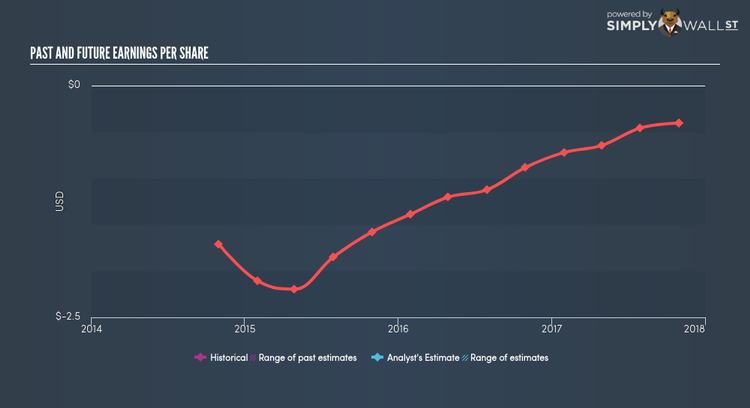Why Champions Oncology Inc’s (NASDAQ:CSBR) CEO Pay Matters To You

Leading Champions Oncology Inc (NASDAQ:CSBR) as the CEO, Ronnie Morris took the company to a valuation of $43.73M. Recognizing whether CEO incentives are aligned with shareholders is a crucial part of investing. Incentives can be in the form of compensation, which should always be structured in a way that promotes value-creation to shareholders. I will break down Morris’s pay and compare this to the company’s performance over the same period, as well as measure it against other US CEOs leading companies of similar size and profitability. Check out our latest analysis for Champions Oncology
Did Morris create value?
Earnings is a powerful indication of CSBR’s ability to invest shareholders’ funds and generate returns. Therefore I will use earnings as a proxy of Morris’s performance in the past year. Over the last year CSBR released negative earnings of -$4.6M . But this is an improvement on prior year’s loss of -$8.0M, which may signal a turnaround since CSBR has been loss-making for the past five years, on average, with an EPS of -$1.47. Since earnings are heading towards the right direction, CEO pay should represent Morris’s valued-adding activities. During the same period, Morris’s total compensation fell by a marginal -4.71%, to $305,000. In addition to this, Morris’s pay is also made up of non-cash elements, which means that variabilities in CSBR’s share price can affect the real level of what the CEO actually collects at the end of the year.
What’s a reasonable CEO compensation?
While one size does not fit all, as remuneration should account for specific factors of the company and market, we can evaluate a high-level benchmark to see if CSBR is an outlier. This outcome can help direct shareholders to ask the right question about Morris’s incentive alignment. On average, a US small-cap has a value of $1B, generates earnings of $96M, and remunerates its CEO circa $2.7M per annum. Normally I’d use market cap and profit as factors determining performance, however, CSBR’s negative earnings lower the usefulness of my formula. Given the range of pay for small-cap executives, it seems like Morris is paid aptly compared to those in similar-sized companies. On the whole, though CSBR is unprofitable, it seems like the CEO’s pay is appropriate.
What this means for you:
Are you a shareholder? In the upcoming year’s AGM, shareholders should think about whether another increase in CEO pay is justified, should the board propose an executive pay raise. Will this raise take Morris’s pay beyond the bound of reasonableness, or will it help in retaining the talented executive? Being proactive in governance decisions is a key part to investing, and collectively, investors can make a big difference. To find out more about CSBR’s governance, look through our infographic report of the company’s board and management.
Are you a potential investor? Although remuneration can be a useful gauge of whether Morris’s incentives are well-aligned with CSBR’s shareholders, it is certainly not sufficient to base your investment decision solely on this factor. Whether the company is fundamentally strong depends on CSBR’s financial health and its future outlook. To research more about these fundamentals, I recommend you check out our simple infographic report on CSBR’s financial metrics.
PS. If you are not interested in Champions Oncology anymore, you can use our free platform to see my list of over 50 sustainable companies producing great returns.
To help readers see pass the short term volatility of the financial market, we aim to bring you a long-term focused research analysis purely driven by fundamental data. Note that our analysis does not factor in the latest price sensitive company announcements.
The author is an independent contributor and at the time of publication had no position in the stocks mentioned.

